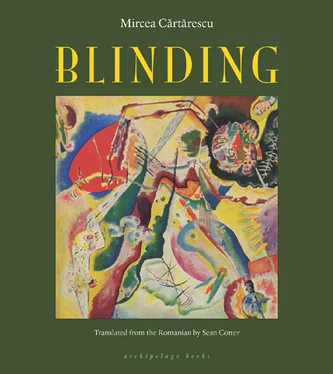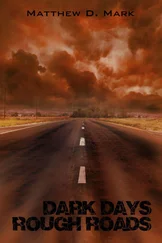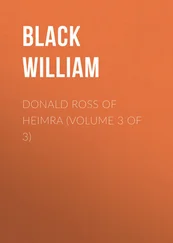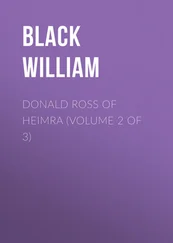Mircea Cărtărescu - Blinding - Volume 1
Здесь есть возможность читать онлайн «Mircea Cărtărescu - Blinding - Volume 1» весь текст электронной книги совершенно бесплатно (целиком полную версию без сокращений). В некоторых случаях можно слушать аудио, скачать через торрент в формате fb2 и присутствует краткое содержание. Год выпуска: 1996, ISBN: 1996, Издательство: Archipelago, Жанр: Современная проза, на английском языке. Описание произведения, (предисловие) а так же отзывы посетителей доступны на портале библиотеки ЛибКат.
- Название:Blinding: Volume 1
- Автор:
- Издательство:Archipelago
- Жанр:
- Год:1996
- ISBN:9781935744856
- Рейтинг книги:3 / 5. Голосов: 1
-
Избранное:Добавить в избранное
- Отзывы:
-
Ваша оценка:
- 60
- 1
- 2
- 3
- 4
- 5
Blinding: Volume 1: краткое содержание, описание и аннотация
Предлагаем к чтению аннотацию, описание, краткое содержание или предисловие (зависит от того, что написал сам автор книги «Blinding: Volume 1»). Если вы не нашли необходимую информацию о книге — напишите в комментариях, мы постараемся отыскать её.
was one of the most widely heralded literary sensations in contemporary Romania, and a bestseller from the day of its release. Riddled with hidden passageways, mesmerizing tapestries, and whispering butterflies,
takes us on a mystical trip into the protagonist’s childhood, his memories of hospitalization as a teenager, the prehistory of his family, a traveling circus, secret police, zombie armies, American fighter pilots, the underground jazz scene of New Orleans, and the installation of the communist regime. This kaleidoscopic world is both eerily familiar and profoundly new. Readers of
will emerge from this strange pilgrimage shaken, and entirely transformed.
Blinding: Volume 1 — читать онлайн бесплатно полную книгу (весь текст) целиком
Ниже представлен текст книги, разбитый по страницам. Система сохранения места последней прочитанной страницы, позволяет с удобством читать онлайн бесплатно книгу «Blinding: Volume 1», без необходимости каждый раз заново искать на чём Вы остановились. Поставьте закладку, и сможете в любой момент перейти на страницу, на которой закончили чтение.
Интервал:
Закладка:
The inside of the handbag, where I had looked before, but not with the interest I now had, smelled like the watches’ old copper and tarnish. The last thing I saw, because they were well hidden in the bag’s dusty folds, were my mother’s dentures, which she never used and hid there like they were shameful, nothing to talk about. When I first found them, I felt the same nausea and discomfort that I’d felt once before, in the depths of my childhood. It happened during the first year that I could cross the street by myself — for some bread, an issue of The Reckless Club , or to get my dad some cigarettes. In the silent summer evenings, I would reach a building that is not there anymore, go into the tobacco store, and look with trepidation at the cashier, a heavily made-up and fat woman with pink hair, surrounded by magazines and newspapers. Outside it was getting darker, and only here, in the little room with a window, was the light intense and still. I looked through the glass counter at all the packs of cigarettes, pipe tobacco, pistol-shaped tin lighters, and pocket knives that looked like lead fish … Next to them were other little trinkets. To me, the most beautiful things were the boxes of lacquered cardboard, with pictures of blue and gold tropical butterflies, and on the right a sticker where something was written in black ink. The word was long and fascinating: prophylactic . What could it have inside? I would often sit in the silence of my room, fidgeting with a toy, a tin laurel tree with a plastic fairy coming out, and wondering what strange, exotic plaything could be inside the butterfly box. Sometimes I imagined it could be in fact a butterfly, with a body like a bow string and wings of the same crinkly paper as fancy candy wrappers. Or a scented, chewy gum, with a little red stone set in the gelatinous middle.
My plan was to wait until the next time my parents and I walked to the Volga Theater to see a movie, and ask them to buy me a prophylactic. It was only three lei . If it came to it, I could get the money myself, from around the house, in five, ten or fifteen bani coins, until I had enough. I started getting the money together, and I imagined the pink-haired cashier would give me a maternal smile and put the box I wanted in my hand (I even knew which one I wanted: the one in the case, where the butterfly fluttered against a bright green background) … One evening on the way to the theater, I saw some Chinese boxes in another tobacco store, and I got up the courage to ask: “Daddy, what’s a prophylactic?” My father frowned and said harshly, “You couldn’t think of anything better to ask?” I was walking between my mother and my father with quick steps, and they went quiet for a few minutes, trading glances. I knew from my father’s tone that I had hit one of those closed doors, those places that your parents, however much they love you, will never let you enter. I could feel their breathing, their mysterious, adult lives, those incomprehensible prohibitions regarding the birth of children and the small and underdeveloped members between the legs and the way Mamma was tumbled onto the bed by my dad in the bedroom, when she cried out and I tried to save her, pounding the spine of a prickly and bestial man. After the unfortunate question, I felt a kind of horror, a feeling I re-encountered when I opened the yellowed packet that held my mother’s dentures. They were upper teeth, from the front, dirty-white with a little blue, made of cheap plastic, stuck into artificial gums. The gums were a color of red that would never be found in the membrane of an actual mouth. They had a special shade, as though their plastic had come from other dentures, old ones melted down and reused: a purple, a barely breathing mauve in the dominant red. A few wire stubs, poking out here and there, added to the fascinating repulsion I felt toward the object in my hand.
I had bad teeth from my mother, prone to cavities and rotting, and chipping. While chewing, I would sometimes feel, on my tongue, an unmistakable piece of molar: shiny as a mirror on one side, rough and hard on the other. From her I had unimaginable toothaches that would make me run through the house, knocking chairs over and pulling on the drapes. But I could tell that it wasn’t dread of my own teeth’s foreseeable future that disturbed me when I saw the hideous curve of those gums. It was their color . There was something in particular about that tinge that reminded me of something I had seen before, something I had once known, but could not bring back to mind. For a few days, I carried my mother’s gums and teeth in my pocket everywhere I walked. I fiddled with them obsessively on my route past Cantemir High on Toamnei Street and Profetului Street, I went down Galaţi in the roar of tram number five, I wandered through ruins around Lizeanu. Twilight came, and the dusty snow on the sidewalks timidly reflected the pink sky. An old woman at a window sucked spasmodically at a child’s candy ring. I saw a cat with eyes that I would know later from Gina. A woman stopped, looked around, and hiked up her stockings, pinching them through her parka and skirt. I was waiting, as I wandered among stores and children’s carts, for the moment when the twilight would turn exactly the same color as my mother’s gums, and suddenly it did. I was on Domniţa Ruxandra Street, where a small piaţa opened, dreamlike, lined with courtyards with colored globes on trellises, and there was an apartment block, almost alive, yellow and thin as a scalpel, with a vertical strip of matte glass over the entrance. The glass glowed in the twilight, and its flame inverted the branching art nouveau ironwork, black and warm as night. The snow lit the piaţa strangely with a white light from below, as though from underground, melting quickly in the morbid rose of nightfall. The silent block made me feel shaken and faint, like a blade plunged into asphalt and broken off. I stood in the middle of the piaţa, like a statue of a sad hero, and from my pocket I took the paper thin with age and unwrapped the hideous object. I raised the dentures over my head, and the teeth began to glitter, yellow like a salt flame, while the gums disappeared, melting into the matching color of evening.
“Ah, Mamma,” I whispered in the crazed silence. I stared at the dentures for a few more minutes in the darkening light, until the dusk turned as scarlet as blood in veins, and the dental appliance began to glow with an interior light, as though a gentle fluorescent gas had filled the curved rubber gums. And then my mother formed, like a phantom, around her dentures. First there was her skeleton, as transparent as bloodworms or a green x-ray, velvet and delicate. Then her skull with the wide, dark stains of her eyes and the small stains of her sinuses, her thoracic cavity, the translucent butterfly of the iliac crest, the gelatinous tubes of her hands, feet, toes, and fingers. Over them, like a light snow, like the veiled fins of an exotic fish, grew my mother’s spectral flesh, a large naked woman with sagging breasts, yet beautiful and young like in photos, with her liquid hair dissolving into the night. She turned toward the livid block, and I held my hand over her lips, as though to stop her from saying something, or from singing. The crown of my head barely reached her nipples. Together, in the descending darkness, we formed an enigmatic statue, holding still for no one. I came back to myself with the dentures in my hand and a sense of frustration, the feeling that I had been very close to something important and serious. I wrapped them up again in the paper and waited, dazed, in the piaţa’s whirling silence.
And suddenly it started to snow. In the sweet light of the lone bulb on the square, hanging, lonesome and violet, from a post, the flakes fell quickly, then slowly, white entering the diffuse ball of light, almost-black passing the center, then white again toward the ground. I felt the snowflakes’ invisible touch on my lips and eyelids, when two or three of the windows in the nearby middle-class houses lit up. Through the colorless air, speckled with the wet ice of the snowflakes, I moved toward the apartment block, a black iceberg rising into the foggy sky. I entered through the side gate, which was guarded by gas meters like two chimerical beasts. I went down a few steps to the garden level. In the whole hallway, painted green, one yellow bulb burned as weakly as a candle. Along the ceiling of the corridor, which twisted unpredictably, ran a pipe, its iron bandaged in places with red putty and hemp. Small rooms, with doors that looked as thin as cardboard, lined the walls on the left and right. At the sound of my footsteps, a door would open to reveal narrow and muggy spaces — a man in his underwear, a woman in a housedress drinking coffee from a chipped cup, an old woman with her headscarf hanging off the back of a chair, revealing two braids of graying hair that hung to her heels … I crept to the stairway that led to the next floor and beyond, and climbed. Each floor was a different color of desolation. There were black doors like in a morgue, enamel plates, much bigger than they had to be, with the apartment numbers; brass, metallic-smelling peepholes, wilted fichus and dank jute rugs. On the top floor there were no doors — only bare walls, with greenish skin, under a weak bulb. A few metal steps led toward the roof exit. Miniscule, quick snowflakes fell inside and melted on the mosaic of the floor. I went out onto the roof and was stunned. A nation of melancholy stretched out before me. It was not possible that I was still on the roof of the yellow block from the piaţa. I was on the peak of a gigantic construction, where at last I recognized one of the old blocks downtown, surrounded by copper cupolas like monstrous breasts. As far as my eyes could reach, Bucharest, like a glass model filled with blood, stretched out its fantasy of roofs: enormous eggs, medieval towers, the spirals of the Metropolitan, the CEC’s crystal stomach, the spheres on top of the Negoiu Hotel and the ASE buildings, the twisted mushrooms of the Russian church, the Telephone Palace iceberg riddled with parabolic antennae, like the iron-braced leg of a child with polio, the phallus of the old fire watchtower, all of it populated with statues of gorgons and Atlases and cherubs and Agriculture and Industry and all the Virtues and Seneca and Kogălniceanu and Bălcescu and Rosetti and Vasile Lascăr, a universe of contorted limestone and gypsum and bronze, covered with snow.
Читать дальшеИнтервал:
Закладка:
Похожие книги на «Blinding: Volume 1»
Представляем Вашему вниманию похожие книги на «Blinding: Volume 1» списком для выбора. Мы отобрали схожую по названию и смыслу литературу в надежде предоставить читателям больше вариантов отыскать новые, интересные, ещё непрочитанные произведения.
Обсуждение, отзывы о книге «Blinding: Volume 1» и просто собственные мнения читателей. Оставьте ваши комментарии, напишите, что Вы думаете о произведении, его смысле или главных героях. Укажите что конкретно понравилось, а что нет, и почему Вы так считаете.












